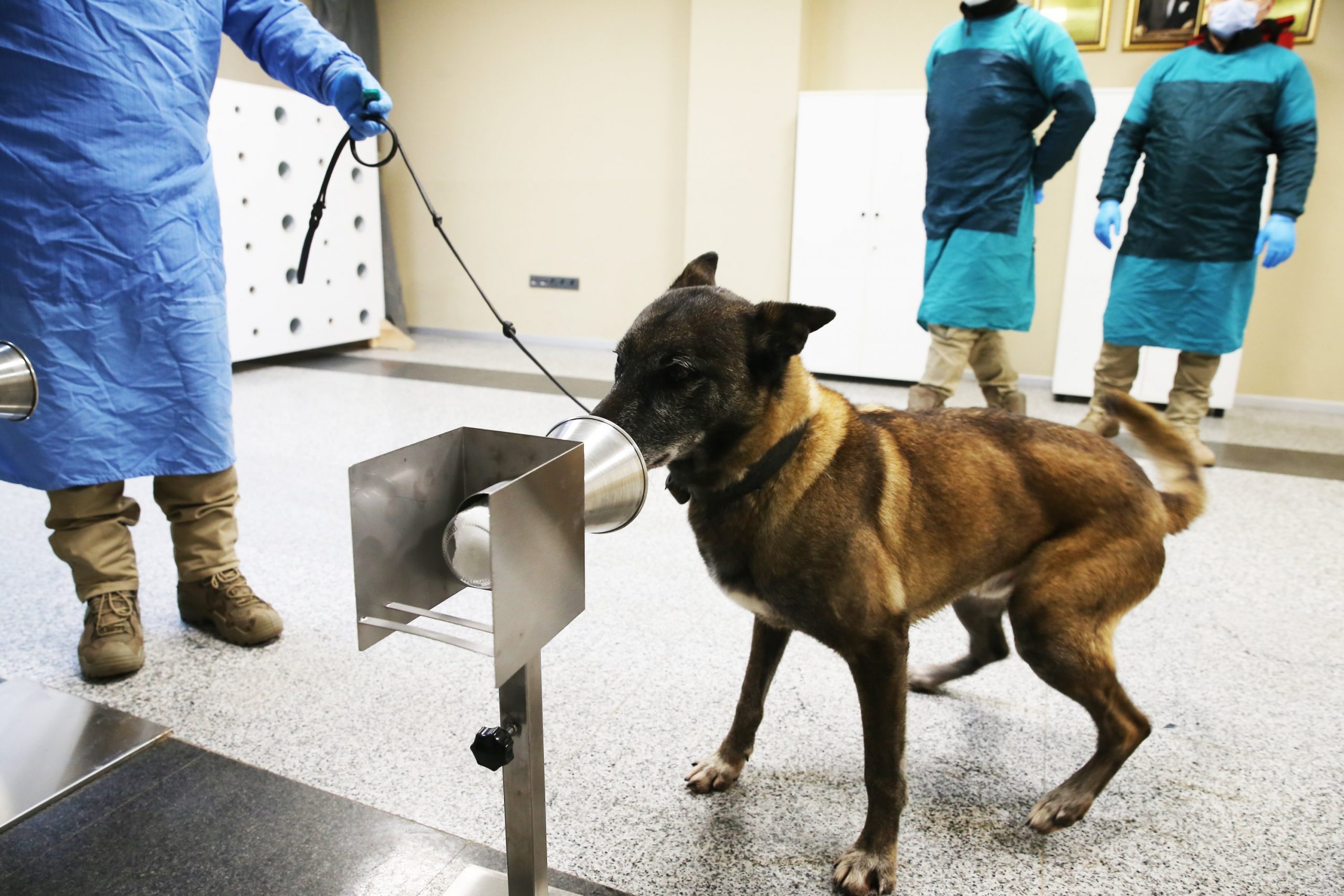Sniffer dogs are increasingly being employed to detect COVID-19 cases as a Turkish security company joined others across the world to use K-9 dogs for this purpose.
Though long-term studies are not available on the abilities of sniffer dogs, scientists believe they may have some sort of accuracy in detecting positive cases.
TAV Security, an Istanbul-based company that specializes in airport security services, enlisted the aid of researchers from a training and research hospital in the city as well as at the Cerrahpaşa Faculty of Veterinary Medicine to train dogs who are already employed and successful in sniffing out explosive materials and drugs. Their advanced sense of smell was tested for the detection of COVID-19 in a study conducted in Turkey over the course of about one year. At a training facility, dog trainers provided training to dogs to detect coronavirus-positive people. Sweat samples extracted from the armpits of COVID-19 positive people were given to the dogs for the training, which took about six months. Trainers say dogs can now tell – or rather gesture – the difference between the infected and the uninfected. When they detect COVID-19 positive people, the dogs are trained to sit in front of them.
Once the training program is complete, the company plans to employ them in airports and similar places. The company’s manager, Turgay Şahan, said that they established their dog training facility in 2019 and decided to train them in coronavirus detection after the pandemic gripped the world.
“Their sense of smell is some 100,000 times (more) advanced than human beings, and they are already used in the detection of diseases in other countries,” he said.
Şahan acknowledged that the doggy detection work cannot be compared to polymerase chain reaction (PCR) and other tests used in the accurate diagnosis of COVID-19, but they may help indicate suspicious cases in crowded places. He said they ran a study with four phases and found that the dogs had a 94% success rate in detecting positive cases.

